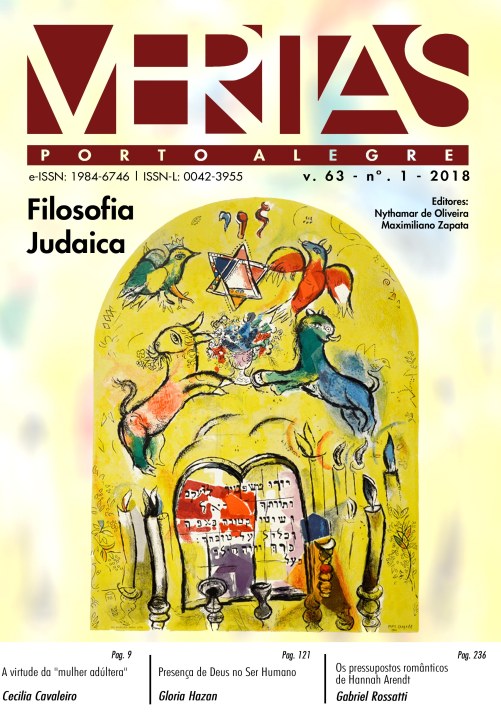Mary in Jewish Tradition
DOI:
https://doi.org/10.15448/1984-6746.2018.1.29652Keywords:
Christianity, Jesus, Judaism, Mary, miracles, virgin birthAbstract
Since Jews rejected the miraculous account of Jesus' birth, they assumed that Mary conceived through illicit sexual activity, sometimes expressed in vulgar terms. Some Jews refuted the possibility of virgin birth by use of philosophical arguments, and others offered scriptural arguments against Mary's perpetual virginity. Despite generally negative views of Mary, there is evidence of an attraction to the idea of a semi-divine female role model and it is possible that certain Kabbalistic interpretations of the divine presence have Marian overtones.
Downloads
References
Standard translations were used for Hebrew and Greek Scriptures. Herford, R. Travers. Christianity in Talmud and Midrash. New York: Forgotten Books, 2012.
Lasker, Daniel J. Jewish Philosophical Polemics Against Christianity in the Middle Ages, 2nd ed., Oxford University Press, 2007, pp. 153-159. DOI: https://doi.org/10.3828/liverpool/9781904113515.003.0007
Shoham-Steiner, Ephraim. “The Virgin Mary, Miriam, and Jewish Reactions to Marian Devotion in the High Middle Ages,” AJS Review 37:1 (April 2013): 75-91. DOI: https://doi.org/10.1017/S0364009413000044
The Talmud: The Steinsaltz Edition. New York: Random House, 1989.
The William Davidson Talmud online at Sefaria. Available at: <https://www.sefaria.org/texts/Talmud>
Toledot Yeshu, In: Michael Meerson and Peter Schäfer, Toledot Yeshu. The Life Story of Jesus, 2 vols., Tübingen, 2014.
Downloads
Published
How to Cite
Issue
Section
License
Copyright
The submission of originals to Revista Veritas implies the transfer by the authors of the right for publication. Authors retain copyright and grant the journal right of first publication. If the authors wish to include the same data into another publication, they must cite Revista Veritas as the site of original publication.
Creative Commons License
Except where otherwise specified, material published in this journal is licensed under a Creative Commons Attribution 4.0 International license, which allows unrestricted use, distribution and reproduction in any medium, provided the original publication is correctly cited. Copyright: © 2006-2020 EDIPUCRS</p






